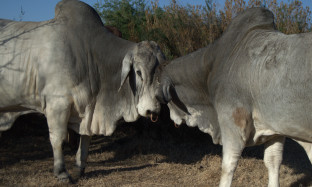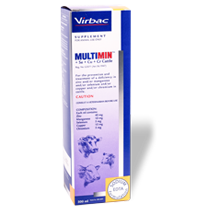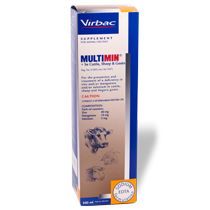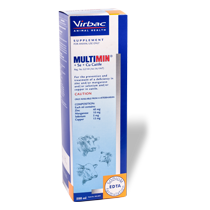
Grab the Bull by the Horns: Unlock Maximum Genetic Potential with Precision Feeding
Precision feeding is essential for bulls to reach their maximum genetic potential, as it ensures optimal growth, reproductive performance, and overall health, allowing the full expression of their genetic traits. Precision feeding starts with basic nutritional principles, including water quality and availability, good quality roughage, correct grazing management, and the right lick/supplement at the right time.
Importance of Body Condition:
There is a high correlation between body condition and fertility, and more specifically, sperm quantity and quality. Therefore, farmers should ensure that bulls do not lose too much condition during the winter months. A body condition score of 3 to 3.5 on the 5-point scale at the start of the breeding season is the target. An over-fat bull (4+) can also have reduced fertility and should be avoided. Fat accumulation in the neck of the scrotum leads to less effective temperature regulation with associated negative effects on sperm development. Any changes to the feeding level of bulls should occur: 1) early and 2) gradually, at least 90 days before the start of the breeding season.
Role of Trace Minerals in Bull Performance:
Zinc, manganese, copper, and selenium are important components of antioxidant enzymes that help control and reduce oxidative stress in the body. Oxidative stress can cause significant damage to sperm cells. Sperm cells can die, and their DNA can be damaged, leading to abnormal sperm and infertility.
Zinc
-
Important for spermatogenesis
-
Important for testicular development
-
A deficiency can lead to delayed puberty
-
Production and circulation of testosterone
-
A deficiency leads to reduced libido
Copper
-
Severe copper deficiencies can lead to testicular defects and bull infertility
-
Plays a role in sperm cell motility
Manganese
-
Important in testosterone production
-
Severe deficiency leads to loss of libido and testicular degeneration
Selenium
-
Important in the production of selenoproteins in the testes—critical for spermatogenesis
-
Part of powerful antioxidant enzymes that protect cells against oxidative stress
-
One such antioxidant, PHGPx, also plays an essential role in:
-
Serving as a structural protein for sperm motility
-
Reducing sperm defects—important in sperm cell development
-
Chromium
-
Reduces stress, thereby promoting spermatogenesis
-
Involved in insulin regulation and helps bulls maintain condition
-
Also involved in the antioxidant enzyme—increases bulls' immunity
Supplementation:
To address possible trace mineral gaps that may arise due to various reasons such as inconsistent intake of grazing or licks, dominance at feed troughs, and antagonists in water or grazing, Multimin—a scientifically proven injectable trace mineral supplement—is recommended at strategic times in the production cycle as a precision tool to supplement trace minerals when demand is high and trace mineral gaps occur.
Since spermatogenesis takes an average of 61 days, Multimin is recommended 3 months before the start of the breeding season. For maximum results, inject bulls again at the beginning of the breeding season and again 4 months later to help them achieve optimal trace mineral levels again after the breeding season.
Figure 1: Multimin promotes sperm density
Figure 2: Multimin promotes sperm motility




